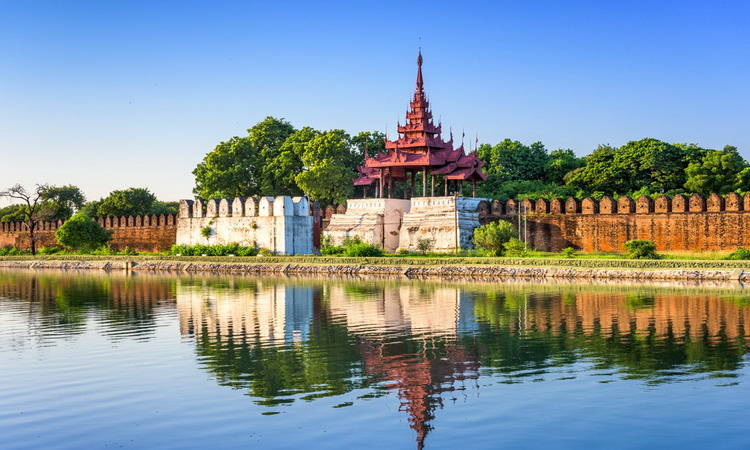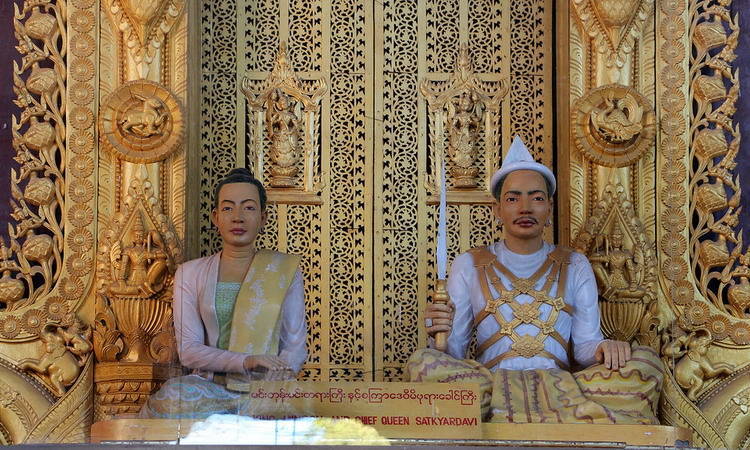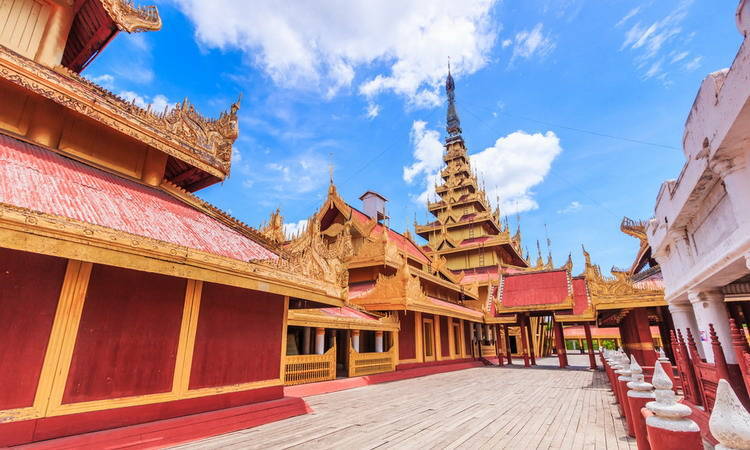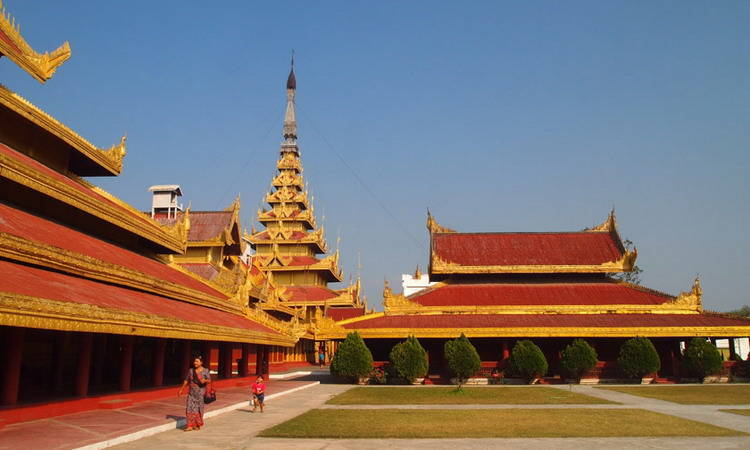THE ROYAL PALACE IN MANDALAY
It’s been more than a century since the last Burmese King lived in the Mandalay Palace. Now it’s been restored for visitors

The year was 1885 and the last Burmese king was standing strong.
The British forces were marching into Mandalay with very little opposition. Their plan to take over the country was succeeding – but capturing the Royal Palace of Mandalay in the centre of the city, was going to be an important symbolic victory.
As it turned out, overtaking the palace – and King Thibaw Min – was even easier than predicted. The British demanded unconditional surrender and that’s what they got. The king and queen were put on a bullock cart and taken down to the river to be sent into exile in India.
The story goes that when the British soldiers pulled out their guns, the king dropped down to his knees and begged for his life to be spared. His queen, however, walked on her own defiantly towards the steamer on the mighty Irrawaddy.
1. The history of Mandalay Royal Palace
After the British invasion, the palace was used by the colonialists as a base for troops in Mandalay and many of the royal treasures were looted and sent back to London (many are still on display at the Victoria and Albert Museum).
But it would eventually fall out of British hands again.
Every global aggressor eventually must face a rising challenger. And so it was that during the Second World War, Japanese forces captured the Mandalay Palace and used it as a supply depot for their expansions in the region.
In retaliation, the Allies bombed the compound and most of it was burnt to the ground.

2. Visiting Mandalay’s Royal Palace
So, almost everything you walk through from the entrance hall all the way past the throne room and to the residences was constructed in the early 1990s.
Although it is faithful to the original design and some traditional construction techniques were used, modern materials like concrete and corrugated iron were incorporated into the reconstructions.
It doesn’t take away from the experience, though, and the authorities have done a very good job at creating a sense of what the palace would once have been like.
The modern construction materials aren’t obvious and you can easily believe you are in the original buildings. Just a shinier version of what they would have been like if nature had not been usurped by war.
Visiting the palace is one of the best things to do in Mandalay. It doesn’t take too long to walk through the palace but it can take a long time to get in to it. The palace grounds are massive and dominate the cityscape.

They are a huge square of about two kilometres on each side, surrounded by a 64 metre-wide moat. Only one entrance can be used by tourists – the eastern – and it can take a long time to get to it if you happen to be on the other side (where most of the hotels are).
There are some great tours in Mandalay, many of which include the Royal Palace. Have a look at these ones that I would recommend:
The reason for the inconvenience is because the actual restored palace takes up only a small space in the centre of the grounds. The rest of the area is used now as a military base and big signs (and guards) remind you that it’s a restricted zone.

All you can do is walk down the pathway and straight into the palace area. No wandering!
At least it is back in the hands of the local people again, whatever the international view of the Myanmar military is.
After the British control and then the Japanese it seems there is now plenty of protection for this important symbol of Mandalay and Myanmar. Nobody will march unopposed through these gates again

3. Where is Mandalay Royal Palace?
Mandalay Palace is in the north of the main city of Mandalay. The entrance for visitors is at the east gate on 66th Street.
4. Opening hours
Mandalay Royal Palace is open every day from 07:30 – 16:30.
5. Entrance fee
For foreigners, Mandalay has something that’s called the ‘Mandalay Zone Fee’ which is 10,000 kyat (US$6.60) and gives you access to several sites including Mandalay Palace.


